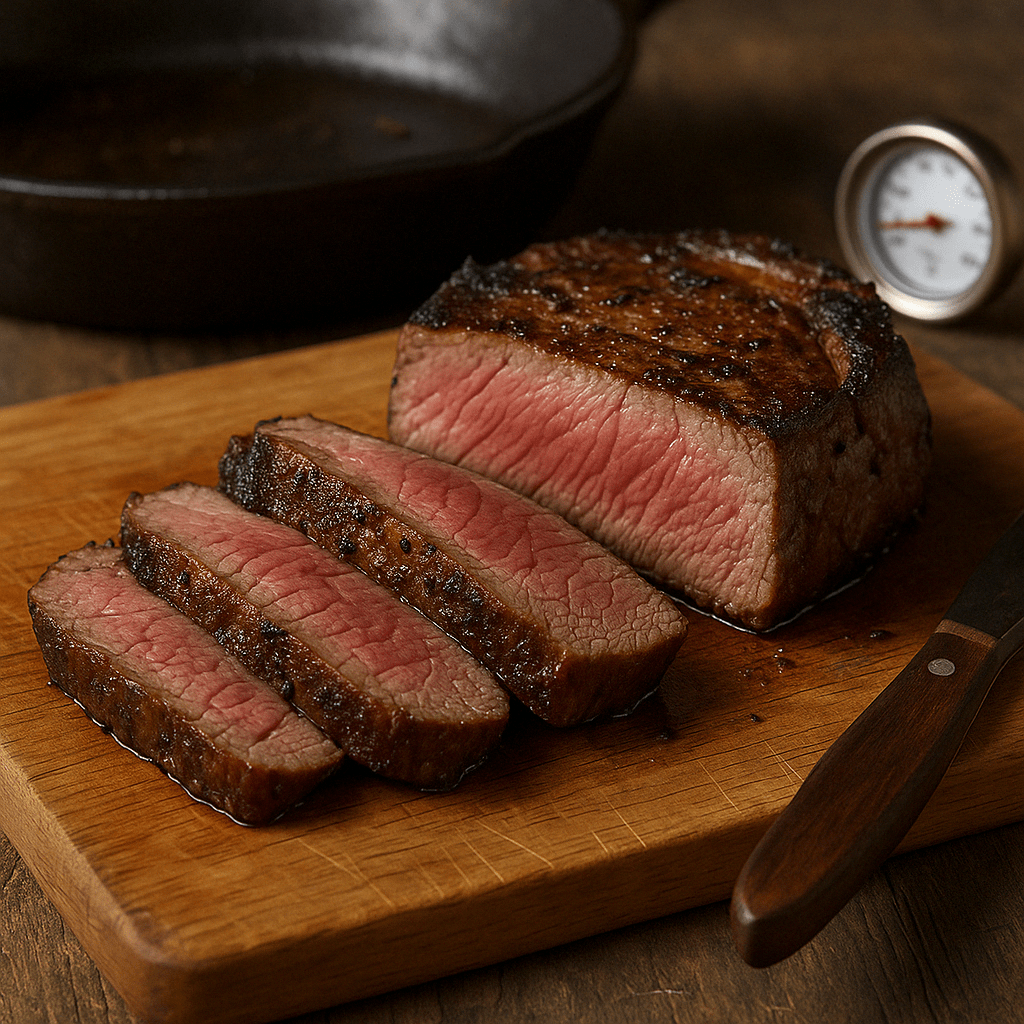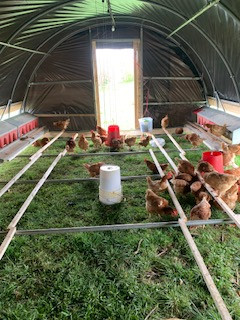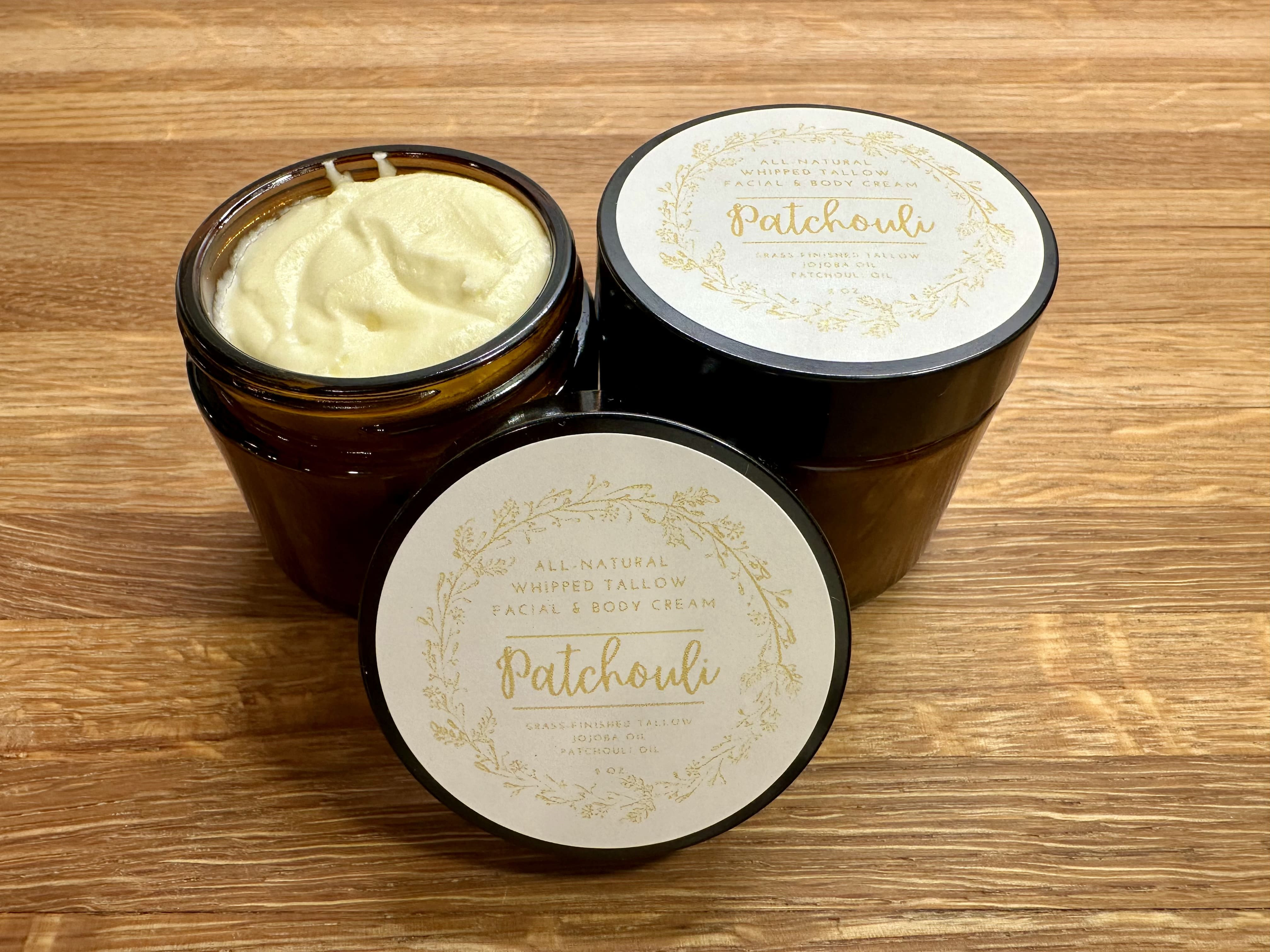All About Our Chickens
posted on
November 12, 2020
All about our Chickens!
As the air gets colder and the chances of winter weather increase, our laying chickens at Cedar Valley Farms receive a little more TLC. This will be our fourth year pasture raising our laying hens and we have expanded the flock from our first 60 birds to hopes of raising 700 Golden Comet pullets in the spring. You can find our farm fresh, pasture raised eggs through our online store, locally in Hodgenville at Lincoln's Lodge, or in Louisville at Rainbow Blossoms.
There are many different breeds of chickens, but the breed we raise are called Golden Comets which is a brown egg layer. Although the demand for tasty orange yolk eggs have not changed much over the years, the management practices have. The traditional eggs found in commercial grocery stores come from laying hens that were raised indoors for peak production and efficiency. If you are looking for a nutrient dense egg with a dark yellow/orange yolk that then you will need one that comes from a chicken raised out on pasture land. Pasture raising chickens allows them to forage for bugs and whatever else they can scratch, which produces natural beta carotene that creates a yellow/orange yolk. These are the nutrient rich eggs that we want to provide to the customers of Cedar Valley Farms!

Going into our fourth year we feel more confident after going through the major learning curves: grazing, predators, and coop size. Our first major learning curve was figuring out how often to move our chickens out on pasture. The mobile chicken coop sits on about 10,000 square feet of pasture at a time in order for our chickens to have access to fresh forages and bugs. Over the years we have found that a three day rotation schedule works best for our chickens. Every three days Jud pulls up the temporary netting and creates a new living space for our chickens. This rotation not only increases in the forages for the chickens, but also increases soil fertility as the chicken litter is spread naturally on the fields. The increase in soil fertility increases pasture lands and future grazing opportunities.

The second major learning curve was dealing with natural predators. Everything loves a chicken...including foxes, coyotes, and untrained neighboring dogs. Our first line of defense is temporary electrified poultry netting. The poultry nettings is 48 inches tall and creates a perimeter around the mobile chicken coop. This not only helps keep the chickens close to the safety of their mobile coop, but helps to keep predators out. Our second line of defense is the chicken coop itself. At sunset each night the chickens begin putting themselves to bed in the chicken coop (after about 1 week of training them to what is their home). Once all the chickens are in the coop for the night, Jud locks them in for a good nights rest. He then opens the coop in the morning at sunlight and back out on pastures they go!
The last major learning curve has been maintaining an accurate chicken coop size for the size of our flock. When we started out in 2018 we had a fixed backyard chicken coop that we quickly outgrew. Jud spent that summer building the Beverly Hillbillies version of our first mobile chicken coop that has provided shelter to our flock for the past two summers. Although an eye sore, the red chicken coop has served its' purpose and protected our layers. As the demand for our farm fresh eggs have increased, we spent the summer of 2020 researching a new mobile chicken coop. We looked at modifying a larger cattle trailer and even revamping a working school bus before a 40 foot cotton wagon caught our eye. Big Bird, our new yellow cotton wagon, is now home to our laying flock. There is a place for the water and feed to the front, new roll out nesting boxes to the sides, a new metal roof, and roosting poles inside. Big Bird will serve our new flock of 700 pullets in the spring and make the perfect shelter at night.

Our growing flock of laying hens has quickly turned into a staple of Cedar Valley Farms. Much like dairy cattle, our schedule revolves around the needs our of flock. They are the first thing to be let out in the morning and the last to be put up at night. We are excited to provide your families with a nutrient dense protein source right from our family farm!







